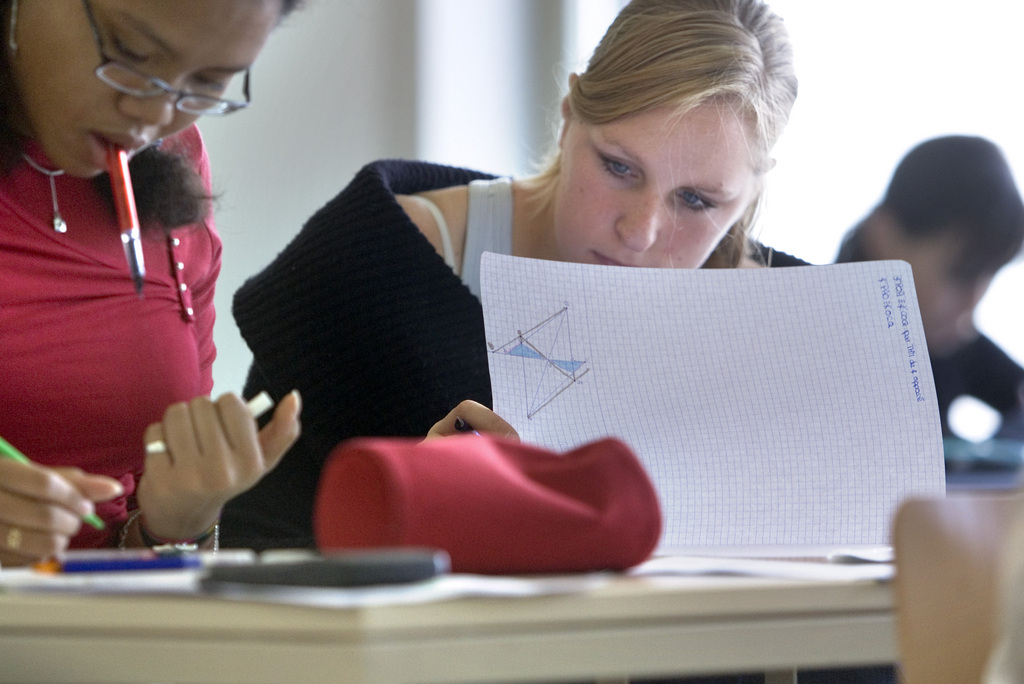
Top 10 slot for Swiss teens in maths

Switzerland, alongside Liechtenstein, has come out top among European countries in an international comparison of more than 510,000 teenagers' maths skills.
Results from the 2012 “Programme for International Student Assessment” (PISA) came out on Tuesday for the fifth time since 2000 and included data from 65 countries.
The survey is run by the Organisation for Economic Co-operation and Development (OECD) and this time focused on maths.
Francesco Avvisati, OECD analyst
It is a well-functioning educational system.
The 15-year-olds’ science and reading abilities were also put under the microscope.
The average score for a Swiss teenager in maths was 531 points, in comparison with the OECD average of 494, putting them in ninth place globally for this skillset.
The Swiss also significantly improved in reading, after disappointing results three years ago there are now fewer poorly performing students in this area.

More
Maths lessons add up for teenagers
The average score has been steadily increasing since 2000.
Swiss teenagers were marked above the OECD average for science. These results also included a reduction in the share of students at the bottom end of performance charts between 2006 and 2012.
“It’s an overall positive assessment of the Swiss education system,” Francesco Avvisati, an analyst in the directorate for education and skills at the OECD told swissinfo.ch.
“[It] is a well-functioning educational system which has become more inclusive. It seems to be flexible enough to actually react to the maybe discomforting news that came in past PISA assessments and it has seen improvements where it was weakest.”

In compliance with the JTI standards
More: SWI swissinfo.ch certified by the Journalism Trust Initiative






























You can find an overview of ongoing debates with our journalists here . Please join us!
If you want to start a conversation about a topic raised in this article or want to report factual errors, email us at english@swissinfo.ch.